The winners of the 2020 ANA ECHO Awards uncover powerful examples of data-led targeting and personalisation, writes WARC’s Chiara Manco.
The ANA ECHO Awards honour data-driven work that advances brands and drives tangible results. Among the 2020 winners, many stood out by showing effective applications of data and technology to fuel real-time targeting and personalised communications.
The Economist x 2018 FIFA World Cup
The Economist has a strong track record of using programmatic to drive effectiveness, and its Gold-winning ANA paper shows the power of real-time targeting in action. Its goal was to stand out during the 2018 World Cup, despite lacking equity as a sports expert and having a small budget. The Economist did what it does best by offering political commentary on participating nations.
Through Proximity London, it identified the most politically compelling matches and created a series of headlines for each one based on the different possible outcomes of the match and the political circumstances of the countries involved. As soon as each match ended, a live data feed triggered a decision engine that dynamically assembled ads from the appropriate headline. Within seconds, these were served to targeted prospects across 30 sites such as Yahoo Sports, Facebook and Twitter, as well as on big screens at Fanzones and World Cup fans’ own devices.
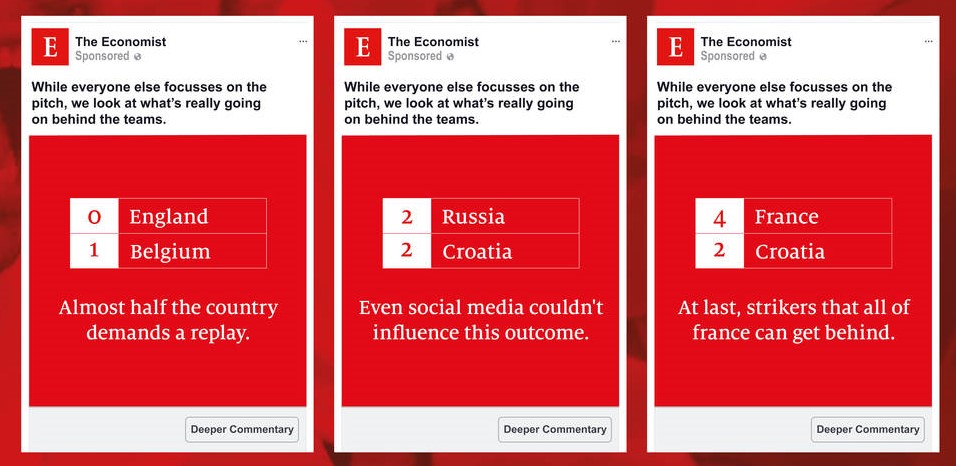
The provocative headlines linked to content on The Economist, where people could sign up for trials or subscriptions. By using the sports event as a gateway into its coverage of world politics and economics, The Economist achieved a click-through rate of 4.24%, far surpassing any previous benchmark for social media activity.
Black & Abroad: Subverting a slur to drive interest in visiting Africa
A travel brand focused on the Black community, Black & Abroad, used AI to hijack racist comments on Twitter in real time. When seeking to promote African destinations to its target, it hit two barriers: misconceptions of the continent and a lack of Black travellers in mainstream travel imagery.
So Black & Abroad combined an algorithm and Google Vision AI to scour social media for images of beautiful African landscapes and Black travellers. Then it identified Twitter posts with the ‘Go back to Africa’ slur and repurposed them by editing out offensive context, placing one of its images as the background and serving them to members of the Black community.
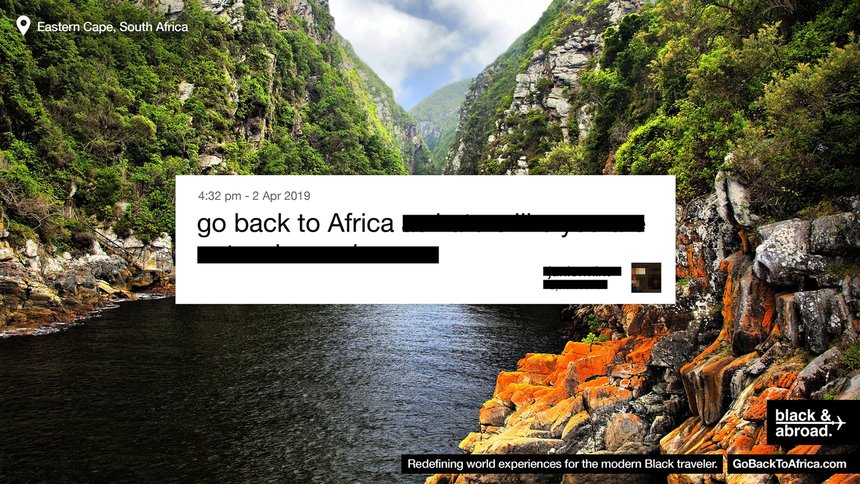
That subverted the meaning of the slur, turning it into an empowering statement and leading to a 60% increase in booking interest for Black & Abroad’s African trips. The campaign, through FCB/SIX Toronto, won Gold at the ANA ECHO Awards.
Fundación Huésped: Data-powered OOH cuts through
Representing a more ‘analogue’ application of real-time tech, this year’s Grand Prix winner Fundación Huésped turned to a data-powered out-of-home installation. An NGO with the purpose of beating HIV, Fundación Huésped aimed to get the attention of leaders attending G20 in Buenos Aires, and persuade them to place the issue on their agenda.
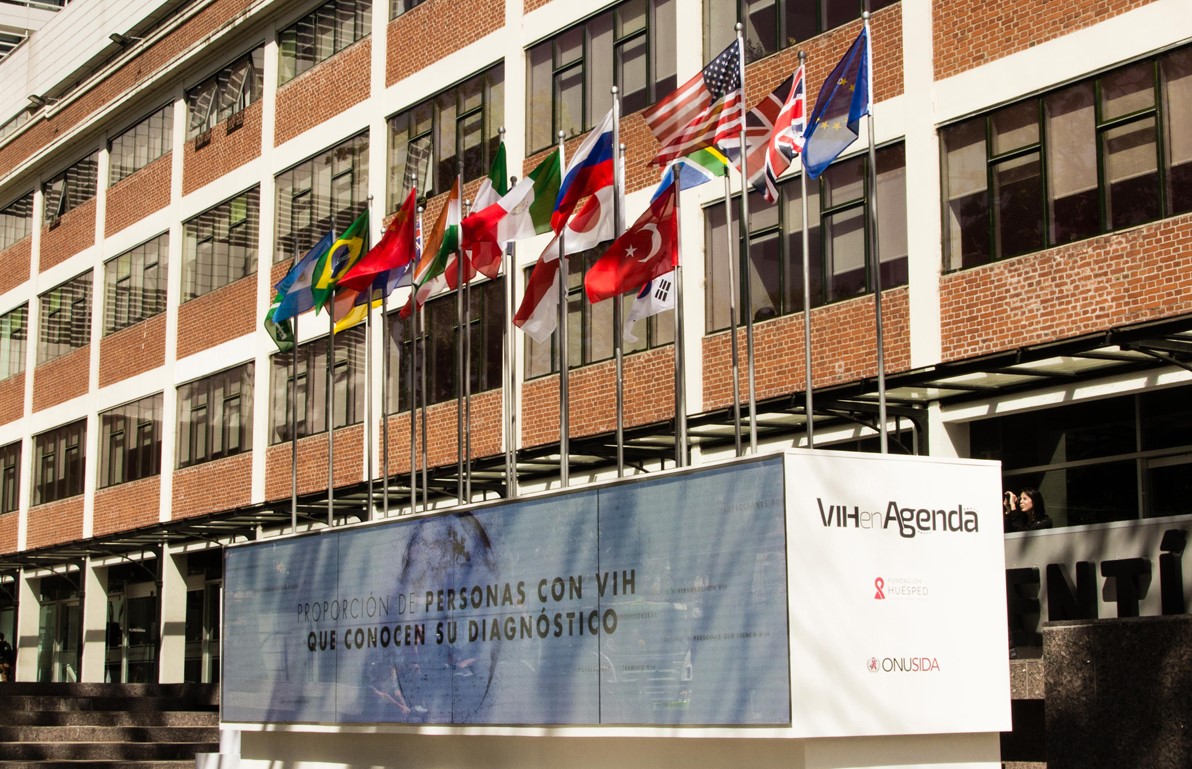
Through Wunderman BA, it created an installation featuring the flags of the 20 nations represented in G20 and placed it near the convention’s centre. The flags would rise and fall in real time according to various HIV statistics, such as the number of children in treatment or new infections in the different countries. The campaign achieved 1.1m in earned media and 120m impressions but, most importantly, it inspired the leaders of every G20 state to commit to the cause of eradicating HIV.
Puppo: Personalised comms that capture hearts and minds
Dog food brand Puppo proved how its products catered for the needs of all dog breeds by creating a custom ad for every registered dog in New York – all 100,729 of them. It pulled data from the city’s Dog Licensing Dataset and paired it with its products’ health benefits. A modular copy system then used the information to generate thousands of artwork combinations, featuring dogs’ names and breeds alongside Puppo’s health benefits. The ads appeared as posters and digital OOH, targeting owners by zip code to reach them with their own personalised message.
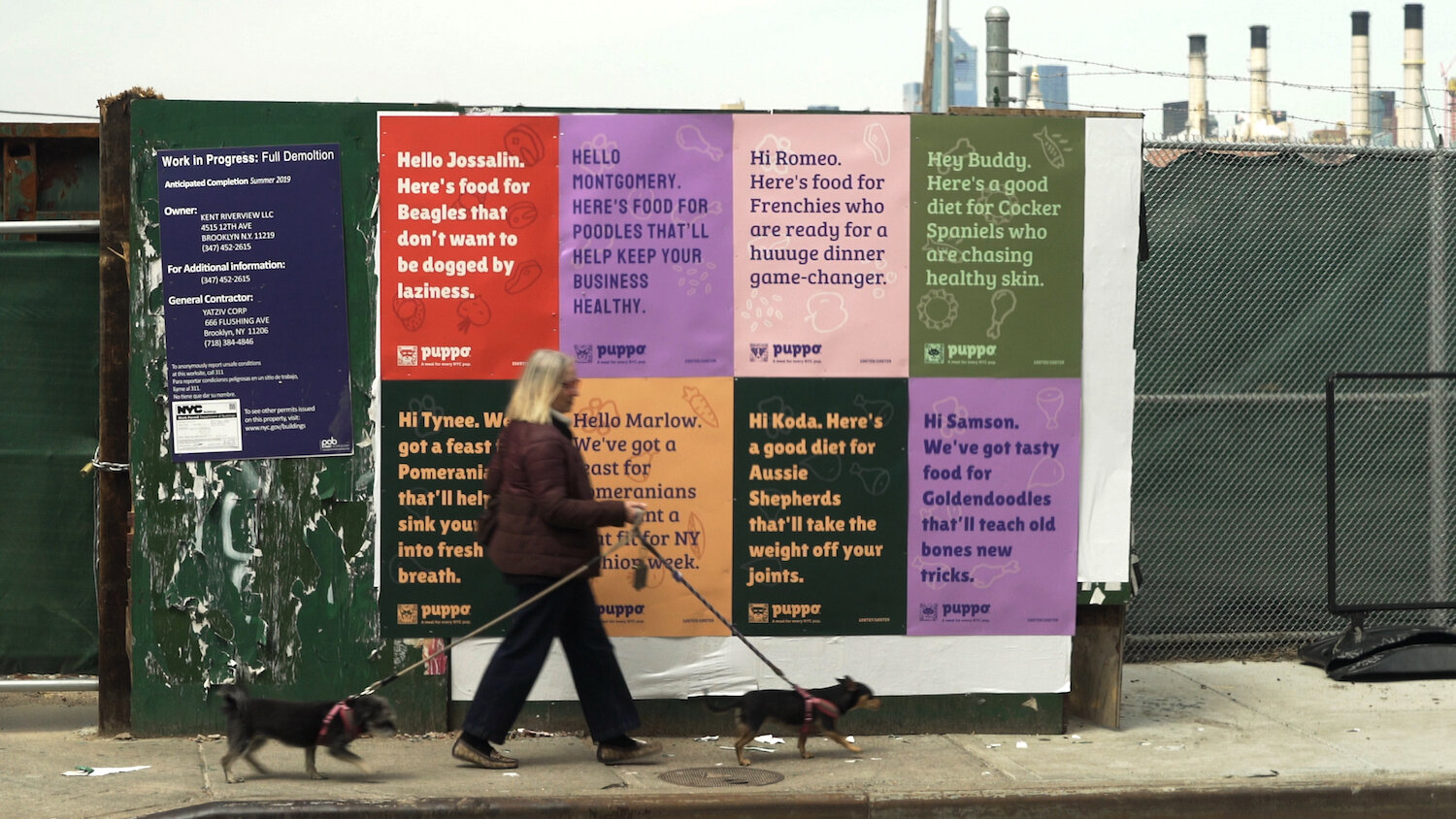
In one week, Puppo’s website saw a 68% spike in new users and of those, 28% came directly from the posters. Organic web searches for the brand also increased by 144%. Through Colenso BBDO Auckland, the campaign won a Gold.
Virgin Holidays: Dreaming, anticipation and reminiscing
Virgin Holidays also focused on capturing consumers’ hearts. The travel operator decided to move away from deal-centric comms and instead fuel excitement for travelling throughout the holiday purchase journey. Looking at a three-year booking cycle, it identified three phases: dreaming, anticipation and reminiscing. Across 43 different touchpoints, Virgin activated on each stage: from gamifying the holiday research process to holiday countdowns, from stress-relieving airport guides to postcards waiting on people’s doorstep when they returned from their trip.
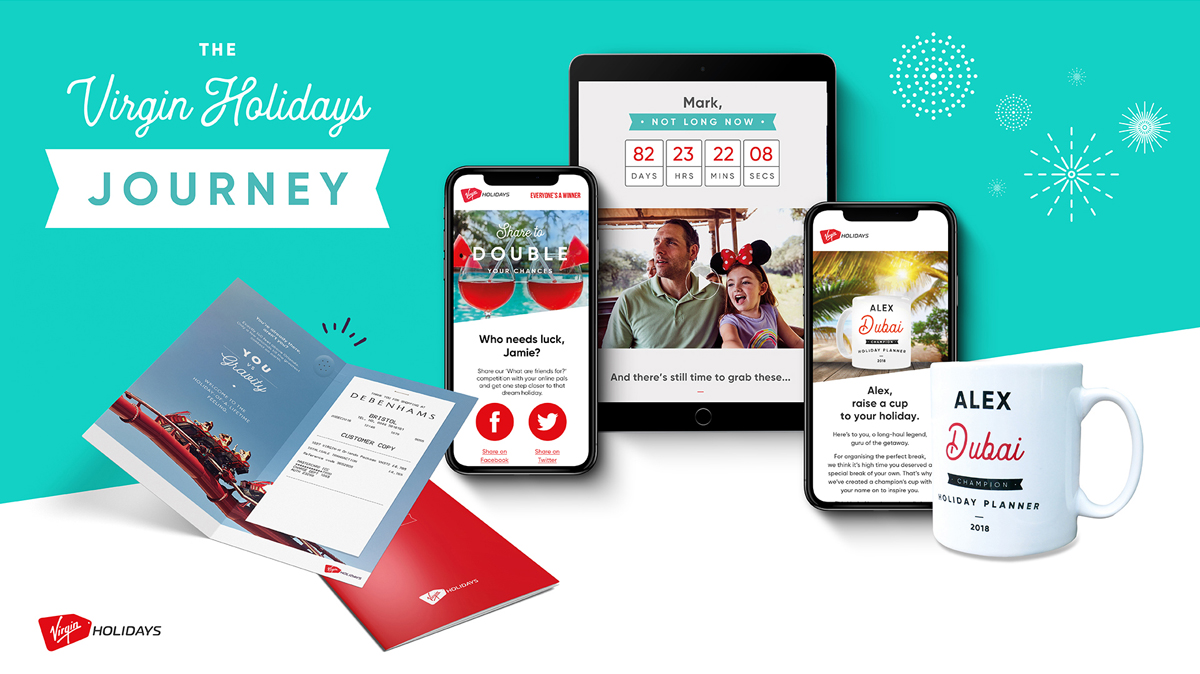
All assets were served based on individualised behavioural triggers, while copy was optimised through AI. The campaign directly contributed to a 10% increase in loyalty for Virgin Holidays, and earned it an ROI of £39.6:1.
Data + creativity
Often there is a misconception that tech and creativity are mutually exclusive when it comes to communications, while in reality their combined power is extremely effective. This year’s ANA ECHO Awards winners show how data-driven, algorithm-led campaigns can be both targeted and creative, both born out of tech and able to connect emotionally with consumers.
The 2021 ANA ECHO Awards are open for entries until December. To find out more and submit your work, visit their website.
All 2020 ANA ECHO winners are available to read on WARC.com.

